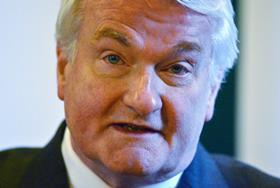Parliamentarians who invoke privilege and then defy court orders are becoming a 'one-person court of final appeal', the lord chief justice has warned.
In a speech to the 21st Commonwealth Law Conference in Zambia on Tuesday, Lord Burnett of Maldon said he was concerned with the rare instances since the 1970s 'when parliamentarians have spoken in parliament in ways that have failed to respect the principle of comity and have not left the courts free to administer justice'.
Once rarities, Lord Burnett said there had been five breaches in the last 10 years, the most recent case concerning non-disclosure agreements alleging sexual harassment in the course of employment.
Lord Burnett said: 'I do not for a moment doubt the genuine belief of the parliamentarians in question that they were acting in what they thought was the public interest. Yet in effect to nullify the order of a court on the basis of an individual view, however genuinely felt, is not compatible with the rule of law.

'It results in the parliamentarian concerned constituting himself a one-person court of final appeal. The freedom of speech in parliament was guaranteed to protect parliamentarians in the exercise of their functions, rather than to enable the open defiance of court orders.'
Instances of parliamentary privilege being abused 'happily are rare', he said. 'Yet the scope for abuse, not only in the context of the defiance of court orders, is great indeed in the absence of appropriate self-restraint or effective rules determined and enforced by parliament itself.'
Lord Burnett said it was a matter for the Commons and Lords whether or not to follow the suggestion of Lord Pannick QC that the standing orders of both houses should be amended so that a parliamentarian should not disclose information he or she knows to be protected by a court order without first seeking and then complying with a ruling by the relevant speaker.
This week Labour peer Lord Hain was cleared by a parliamentary watchdog after naming the subject of an injunction despite his links to a law firm involved in the matter.



























5 Readers' comments